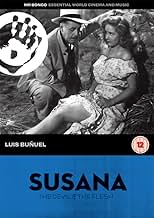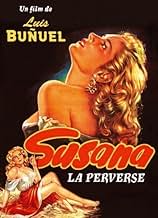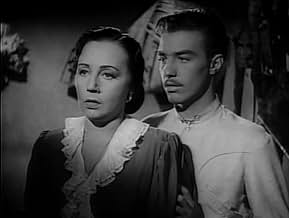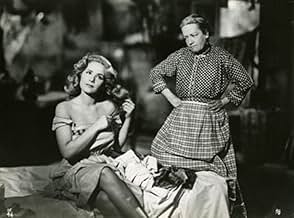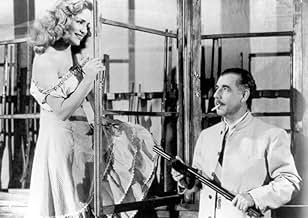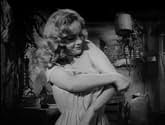Ajouter une intrigue dans votre langueAn unstable young woman escapes from a reformatory for seriously wayward girls and deceptively finds shelter in the kind home of a frighteningly nice and decent family. Little by little, she... Tout lireAn unstable young woman escapes from a reformatory for seriously wayward girls and deceptively finds shelter in the kind home of a frighteningly nice and decent family. Little by little, she causes unrest and discord among the members of the household until they are all fighting ... Tout lireAn unstable young woman escapes from a reformatory for seriously wayward girls and deceptively finds shelter in the kind home of a frighteningly nice and decent family. Little by little, she causes unrest and discord among the members of the household until they are all fighting with one another.
- Prix
- 1 nomination au total
- Empleado de Guadalupe
- (uncredited)
- Empleada de Guadalupe
- (uncredited)
Avis en vedette
Sure, it definitely pales in comparison to the desire and temptation on parade and blasting at 11 in Un Chien Andalou or Viridiana. That's because Bunuel is keeping it on the down-low, which has its advantages and sort of disadvantages. On its own Susana is simply a melodrama, a story of this girl Susana (beautiful and talented if two-note Rosita Quintana) who escapes in one of those fun Bunuelian twists from a mental asylum to wind up on a rainy night in the care of a pretty religious farmhouse. She fits in with the chores and such, but also does her best to tempt the prudish on the farm (when she's asked to cover up she does, until no one's looking relatively), but winds up in a real pickle when tempting the wrong man.
And, on its own terms, it's a pretty decent melodrama. Some good performances, a few very good scenes of dialog and tension, but also on the scale of a very good soap opera all the same. I can see where Bunuel might have had some tension during the making; it feels and is a studio production, and as such he had to stay well within the limitations of the subject matter and low-budget. But it is worth seeing because it is still a Bunuel picture, with moments like that scene at night where the two men look on, tongues practically dangling out of their mouths, watching as Susana simply brushes her hair in silhouette, or a few moments where the twisted humor ratchets up a notch or too (it's rare, but worth it, if only in the unintended or just dated "scandalous" nature of the content). It's safe stuff coming from the director of the Phantom of Liberty, but it's not at all a bad movie either.
The film is also a major departure for actor Fernando Soler playing the role of the rich landowner who gives a tepid performance compared to the one he gave in the other Bunuel film "The Great Madcap" (1949) made 2 years before this film.
In fact, the movie itself is grounded on a surreal precondition, in the opening scenes, Susana is locked up in a solitary cell, she entreats God in front of a cross materialised by the shadows of the metal bars, to give her a way out since she can not change her nature, which is made by God himself, so God grants her wish, as if he wants to cast a prank on us, releases the snake into the Garden of Eden. The script runs formulaic-ally where three different types of men all become the victims of Susana's seduction, Rosita Quintana successful captures her carnal allure with crude histrionics, for the spunky Jesús, she is the unattainable wench who promises him something sweet but refuses his pushing courtship; for the bookish Alberto, she is a proactive seductress from whom he is too green to resist, and for the patrician Guadalupe, she becomes a damsel in distress, who inadvertently rekindles his sexual urge which a married middle-age man can no longer obtain from his wife. While men are succumbing to their primitive lust, after seeing through her veiled pretence, Carmen and Felisa strike up, only that would be too late if Buñuel had opted for a more sinister finale.
The happy ending is a policy of appeasement, even the mare miraculously regains its vitality, but the re-gained conformity and harmony appear so ironic thanks to Buñuel's poker-faced mockery - how simple a weed in the field can bring about moral corruption to a conventional middle-class family. SUSANA is a fetching microcosm of Buñuel's views on human frailties, unambitious, simple but integral and surprisingly gratifying.
Le saviez-vous
Meilleurs choix
- How long is Susana?Propulsé par Alexa
Détails
- Date de sortie
- Pays d’origine
- Site officiel
- Langue
- Aussi connu sous le nom de
- Susanna - Tochter des Lasters
- Lieux de tournage
- sociétés de production
- Consultez plus de crédits d'entreprise sur IMDbPro
- Durée
- 1h 26m(86 min)
- Couleur
- Rapport de forme
- 1.37 : 1

